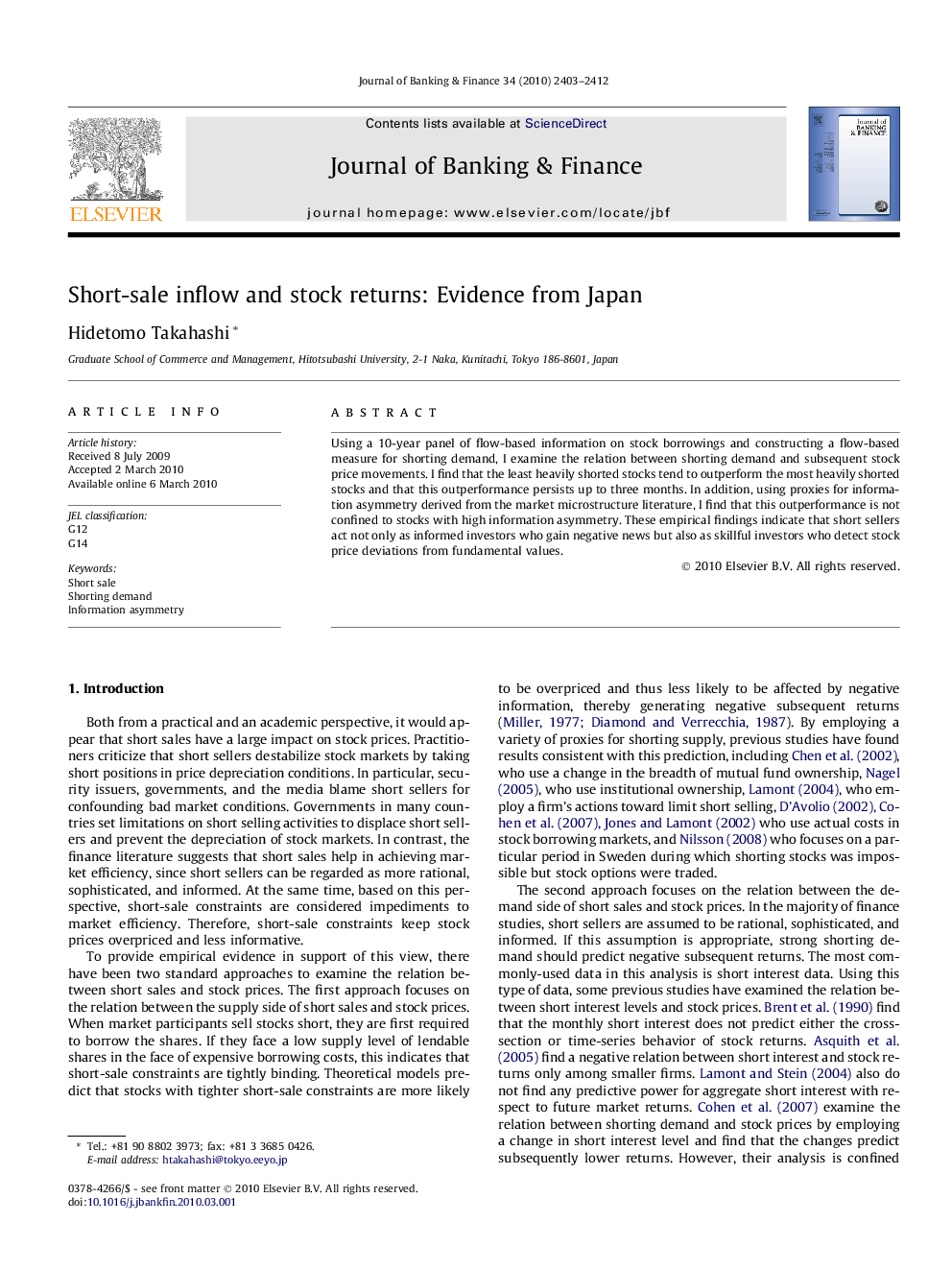| Article ID | Journal | Published Year | Pages | File Type |
|---|---|---|---|---|
| 5090686 | Journal of Banking & Finance | 2010 | 10 Pages |
Using a 10-year panel of flow-based information on stock borrowings and constructing a flow-based measure for shorting demand, I examine the relation between shorting demand and subsequent stock price movements. I find that the least heavily shorted stocks tend to outperform the most heavily shorted stocks and that this outperformance persists up to three months. In addition, using proxies for information asymmetry derived from the market microstructure literature, I find that this outperformance is not confined to stocks with high information asymmetry. These empirical findings indicate that short sellers act not only as informed investors who gain negative news but also as skillful investors who detect stock price deviations from fundamental values.
